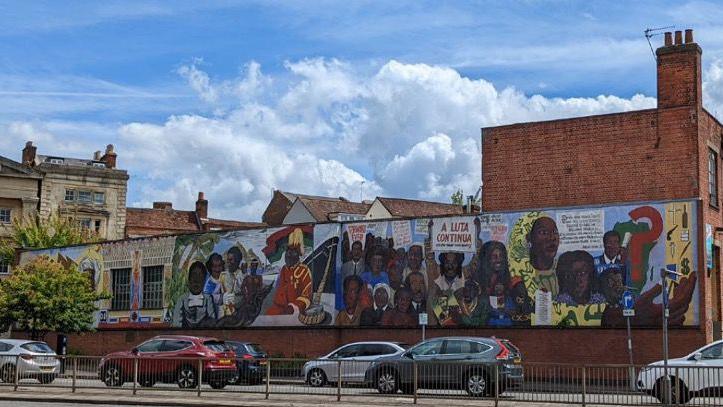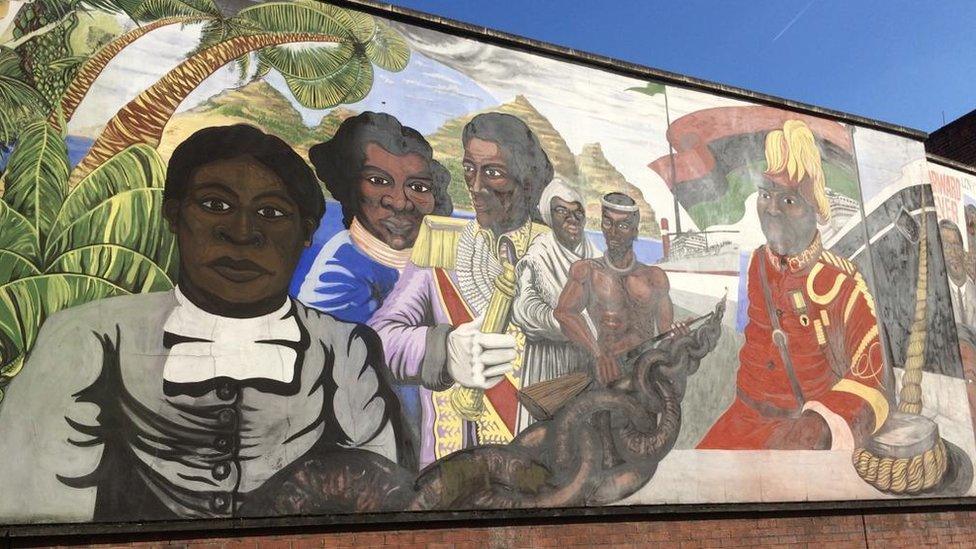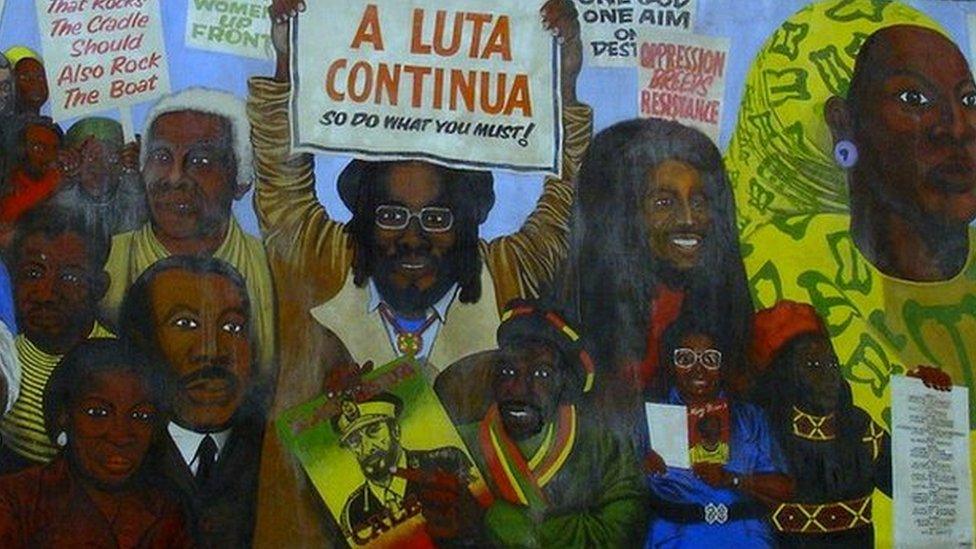Black community hub closure 'such a shame'

Reading Central Club's building is instantly recognisable for its iconic 36m-long mural celebrating black trailblazers
At a glance
Reading Central Club was used by as hub for the African-Caribbean community before its closure in 2006
Members of the community say its closure has left them with no space to meet
The council has since given approval to turn the unused building into 17 flats
Reading resident and publisher Yvonne Yew reflects on the club's closure during Black History Month
- Published
Members of the African-Caribbean community have said the closure of a culturally significant building has left them without a space to meet.
Reading Central Club was used by thousands of people as a community centre until it was closed by the town council in 2006 due to financial cost-cutting.
In July the authority’s planning committee approved plans to turn the building into 17 flats.
Reflecting on its closure and the impact it had on the black community during Black History Month, Reading resident and publisher Yvonne Yew said it was “such a shame”.
Ms Yew, who runs Reading Caribbean Express News, said: "It was such a good community centre.
“We need to have somewhere we can belong in. Caribbean young people have nowhere to go, they don’t feel like they belong.”
Ms Yew said the club provided a good place for community cohesion and de-escalating conflicts.
“If there was tension, at the Central Club elderly members would have calmed people down, and tell them ‘that isn’t the right way'," she said.
“It stopped issues arising. And it wasn’t just Afro-Caribbeans coming there, lots of people went."
The building has stood empty for nearly two decades.
Reading Borough Council said it had pledged £220,000 towards refurbishments as long as the Reading African Caribbean Community Association (ACCG) could match the funding, which it was not able to do.
A spokesperson for the council said: “The council had a long history spanning many years of working with the community and the voluntary sector to attempt to bring the old Central Club back into community use."
Plans by developer Red Line to turn the club into 17 flats were approved, provided the Black History Mural would be protected and restored.
Ms Yew said she hoped the mural, which features Olaudah Equiano, Marcus Garvey and Malcolm X, as well as local residents Jeff Alamby and Davie Archibald, would be restored in consultation with the original artist.
Follow BBC South on Facebook, external, X, external, or Instagram, external. Send your story ideas to south.newsonline@bbc.co.uk, external.
Related topics
- Published20 December 2022

- Published18 June 2020

- Published17 July 2018
